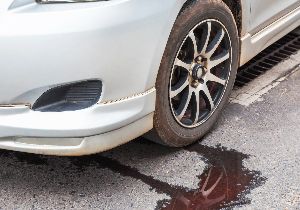
A continuously variable transmission (CVT) offers smooth acceleration for vehicles, as there aren't any power interruptions when the gears shift. These systems are used in many vehicles and are becoming a popular component for auto manufacturers to use, as they are reliable and easier to repair. Below is more information about CVT transmissions, how they work, and when you need repairs.
How Do They Work?
A CVT doesn't contain a fixed number of preset gears like a traditional automatic or manual transmission. Instead, they employ an unlimited number of gear ratios, allowing the car to adjust to different driving styles and conditions. This is carried out with the use of two conical pulleys with a chain or belt running between them. One cone links to the engine output shaft and the other delivers power to the driveshaft and drive wheels. As the pulleys move closer together or further away from one another, the gear ratios change as needed. This causes the belt to move along the sides of the cones. The movement lengthens or shortens the diameter of the belt, changing the gear ratio according to the amount of power required. The process occurs quickly and in real time as the vehicle moves.
How Can You Spot CVT Transmission Failure?

Recognizing the signs of CVT failure allows you to secure prompt repairs before the component breaks down entirely and requires replacement. The most obvious sign that a CVT transmission is failing is hesitation when switching the car into drive or reverse. Alternatively, you may notice that the gears don't shift seamlessly when you are accelerating or decelerating. This often occurs when you don't have enough transmission fluid or an internal seal is broken.
Another obvious sign is when you notice transmission fluid leaking from the car. This often appears with a pink or red color, and it has a similar consistency to oil. A CVT contains multiple seals that can wear away or break down, rendering them unable to contain the fluid. Finally, pay attention to any burning odors while driving. This can occur when the transmission overheats, and without prompt attention, it may fail completely. This can leave your car inoperable until you replace the component.
If you notice any CVT transmission issues, contact AutoTech Transmissions in Phoenix, AZ. Since 2010, they have been serving drivers throughout the Greater Phoenix metropolitan area. They provide comprehensive transmission service, as well as preventive vehicle maintenance and auto repairs. Call (480) 256-8866 to request a quote, and visit them online to explore their services.
About the Business
Have a question? Ask the experts!
Send your question

